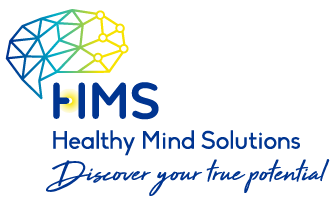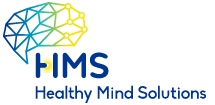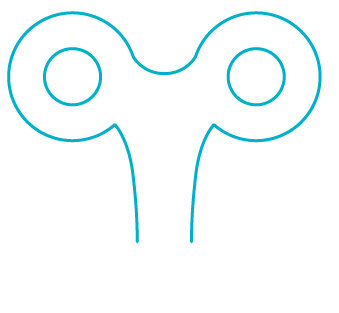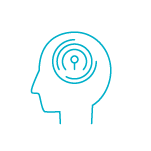rTMS Therapy
Repetitive Transcranial Magnetic Stimulation (rTMS) therapy is a form of brain stimulation treatment that is being used to successfully treat patients all over the world.
rTMS therapy is non-invasive and involves the use of repetitive electromagnetic pulses to target the relevant area of the brain for the condition being treated. It is painless and can be effective for a range of conditions and disorders, including:
Depression
Fibromyalgia
Neuropathic Pain
Post-Traumatic Stress Disorder (PTSD)
Obsessive Compulsive Disorder (OCD)
It is also being used to treat a range of other conditions such as chronic headaches, migraines and other chronic pain conditions, tinnitus and addiction disorders including smoking cessation especially if patients have failed to respond to other forms of treatment.
It has been found to be particularly effective for patients experiencing treatment resistant depression, with studies showing patients experiencing a much higher quality of life, and lower use of antidepressant medication.
Common questions about rTMS therapy…
-
Patients report a range of changes as a result of rTMS, including more energy and focus, decreased experience of pain and related symptoms and increased motivation to get involved in hobbies, work and relationships.
-
rTMS therapy is recommended for Healthy Mind Solutions patients when other interventions, such as psychological therapy and medication, have been unsuccessful. Your practitioner will talk with you about all the options available, including rTMS therapy.
-
You will be seated during all your rTMS appointments and be asked to remove any magnetic-sensitive objects (such as jewellery, most piercings and credit cards) prior to the treatment, because rTMS uses magnetic pulses. You will be given earplugs for your comfort, because the rTMS device makes a ticking noise, which is similar to an MRI machine.
During the first appointment, measurements will be taken to ensure that the rTMS coil is positioned properly over your head. Your rTMS technician will then administer several brief pulses to determine the appropriate amount of energy required. This varies between patients.
Once this is determined, the coil will be positioned over the front region of your brain the treatment will then commence. Throughout the treatment, you will hear clicking sounds and feel a tapping sensation under the coil.
The treatment takes on average 20-30 minutes and is usually done over 4-7 weeks with sessions daily. Your rTMS technician will be in the room with you at all times.
-
Yes, absolutely. After treatment you can continue whatever you would usually be doing for the rest of your day.
-
The pulses are significantly weaker that those used in an MRI machine. Some patients experience tingling or a tapping session on the scalp in the area being treated. This sensation usually subsides over the first few sessions as they get used to it.
-
Most patients experience positive effects from rTMS therapy for years after their initial treatment. If needed though, follow up rTMS sessions can be provided.
-
Medicare funding is available for eligible patients with treatment resistant Depression, and it may also be funded by WorkCover, TAC, DVA, ADF and some 3rd party insurers.
Patients with conditions other than Depression may pay for sessions privately.
-
Your rTMS appointments will be 5 days per week for 4-7 weeks, depending on your response to the treatment.
-
We strongly encourage all patients to ensure they attend all appointments so that an rTMS treatment is not missed.
-
rTMS is a safe treatment which has been used and studied for over 30 years. There are no long-term side effects to rTMS and while short term side effects may occur during the treatment, they are rare and unlikely to affect the course of the treatment.
Short term side effects may include scalp discomfort or headache around the placement of the coil, and passing tiredness.These are usually minor and do not stop patients from going about their day-to-day life.
If you have any questions about rTMS side effects, please contact us or speak with the rTMS Psychiatrist or your rTMS technician.
Other resources include:
Australian Journal of General Practice
Volume 47, Issue 3, March 2018
Repetitive transcranial magnetic stimulation in the treatment of depression
https://www1.racgp.org.au/ajgp/2018/march/repetitive-transcranial-magnetic-stimulation
John Hopkins Medicine
Transcranial Magnetic Stimulation (TMS) Service
https://www.hopkinsmedicine.org/psychiatry/specialty_areas/brain_stimulation/tms/
Brain Stimulation
Early relapse (ER) transcranial magnetic stimulation (TMS) in treatment resistant major depression
Pridmore, Saxby et al.
Brain Stimulation: Basic, Translational, and Clinical Research in Neuromodulation, Volume 11, Issue 5, 1098 - 1102
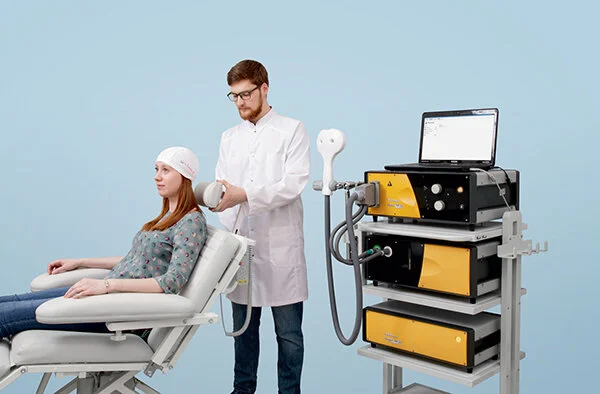

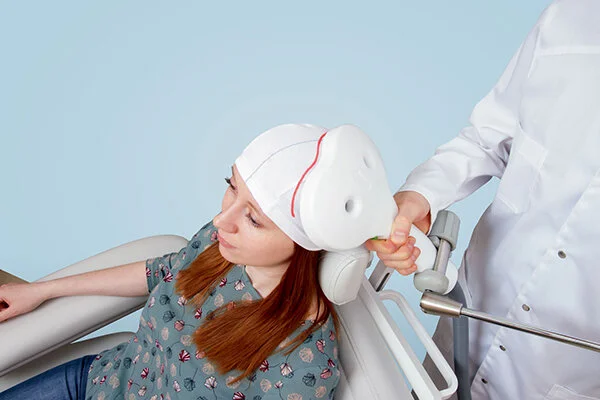
If you would like to find out more about your suitability for rTMS therapy, please see your GP for a referral to our psychiatrists and book an appointment.
Healthy Mind Solutions patients can also find more information on our Patient Info page
